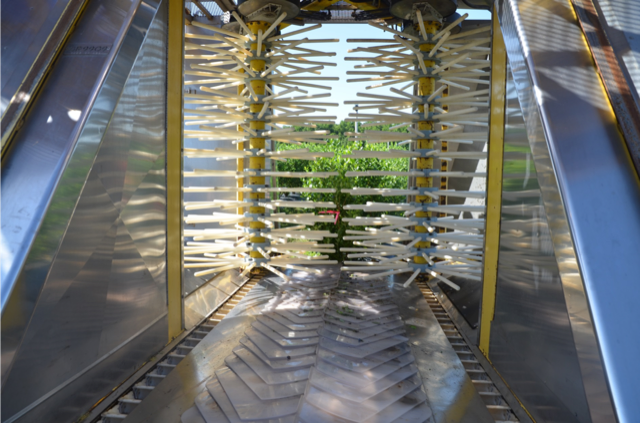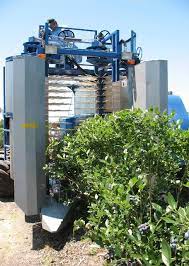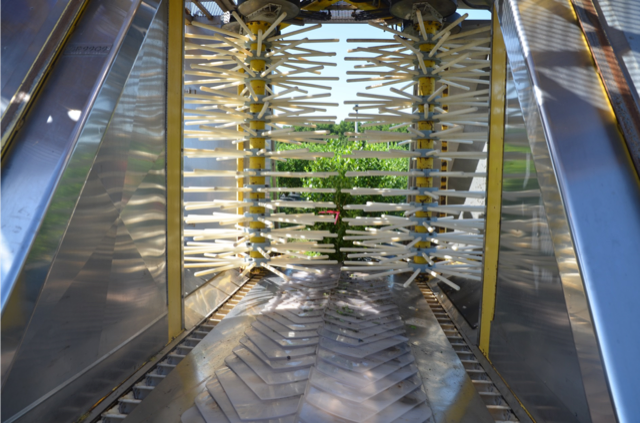By Clint Thompson
Machine harvesters are a key to Southeast farming operations remaining sustainable for the foreseeable future.
More research funding is needed so scientists like Changying (Charlie) Li, professor in the University of Georgia School of Electrical and Computer Engineering, can develop advancements for specialty crop producers.


“Imagine if we don’t need any labor, just deploy the robots and let the robots harvest for you in specialty crops. That would be a great future,” Li said. “Definitely we need a funding support; for example, the Georgia Specialty Crop Block program or the U.S. Department of Agriculture NIFA (National Institute of Food and Agriculture) Special Crop Research Initiative to support those efforts. I believe we can reach those goals, but it takes efforts.
“I think many of the technologies are already there; deep learning, facial recognition, those techniques where we can detect fruit with inclusion. Autonomous driving technologies where we can also leverage for motion planting, for robotic arms, I think some of those technologies are already there. We need to invest and integrate those technologies and address those unique challenges facing specialty crops.”
This is especially significant for the specialty crop sector where labor expenses comprise a large portion of a grower’s budget.

Credit: Jeffrey G. Williamson
“I think mechanical harvesting, robotic harvesting are very important, because right now most fresh market fruits and vegetables are harvested by hand. We need about 400,000 laborers to harvest fruits and vegetables every year,” Li said. “One challenge is you have to find those laborers for a very short period. It’s hard to find those laborers just for a short period of time. I think this is one of the major bottlenecks for specialty crop development.”
Of course, specialty crops are highly sensitive to machines moving through a field. Researchers need to develop harvesters that will not damage fruit that make it unmarketable.
“Specialty crops are fragile, they’re not like commodity crops. Commodity crops, we have already achieved mechanical harvesting for all of them; wheat, soybeans and cotton,” Li said. “Since specialty crops are perishable, it creates excessive bruising and damage to where they cannot be sold. That’s why it’s challenging.”











